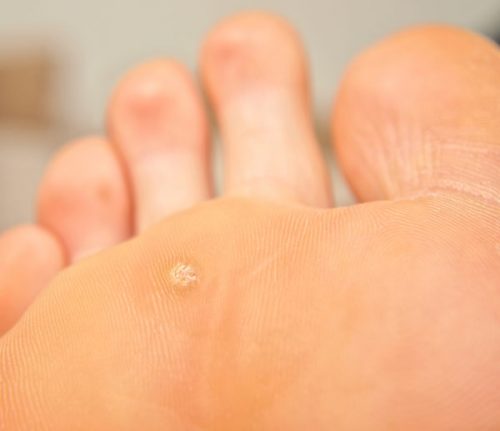admin
Latest posts by admin (see all)
- Wart Cream: Which One to Choose? - October 14, 2019
- Wart Freeze: How Does the Cryodestruction Take Place? - October 11, 2019
- How to Use Salicylic Acid for Warts Removal? - October 8, 2019
Check the most frequently asked questions about warts. The answers will definitely help you to find the useful information that you can use to remove warts successfully and even prevent their appearance on your body. Here is the list of 19 questions and asnwers for you to have a look at.
Contents
- Question number 1: What is a Wart?
- Question number 2: What Causes Warts?
- Question number 3: How Do You Get Warts?
- Question number 4: What Are the Types of Warts?
- Question number 5: Where Do Warts Come From?
- Question number 6: Are Warts Contagious?
- Question number 7: Are Warts Itchy?
- Question number 8: Do Warts Hurt?
- Question number 9: Is a Wart with Black Dots a Bad Symptom?
- Question number 10: What Is the Medical Term for Wart?
- Question number 11: How Do Warts Spread?
- Question number 12: What Is the Best Way to Get Rid of Warts?
- Question number 13: How to Get Rid of Genital Warts?
- Question number 14: What Causes Genital Warts?
- Question number 15: Do Genital Warts Go Away?
- Question number 16: How to Get Rid of Plantar Warts?
- Question number 17: Are Plantar Warts Contagious?
- Question number 18: Why Does Plantar Wart on Toe Appear?
- Question number 19: What Causes Warts on Hands?
Question number 1: What is a Wart?
A wart is a skin growth, which size may vary but in most cases it is from 5 to 15 mm. The growth on your skin is of the benign nature but in rare cases such tumors may become malignant. That’s why you should treat this skin problem with the utmost seriousness and see a health care specialist to identify whether you have a wart or any other growth on your skin.
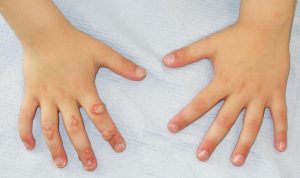
More information here.
Question number 2: What Causes Warts?
The cause of warts is Human Papilloma Virus (HPV). It penetrates the body some time earlier before you notice warts, which may appear in several months after you have been infected with the virus. HPV can be transmitted in different ways and skin isn’t the only place it penetrates. Warts are just external appearance of the virus, which signal that you have a weak immunity and need to consult the doctor concerning the virus treatment.
More information here.
Question number 3: How Do You Get Warts?
Once on the skin surface, the virus penetrates deep into the microdamages and is fixed in the basal (lowest) layer of the epidermis. It is here that its 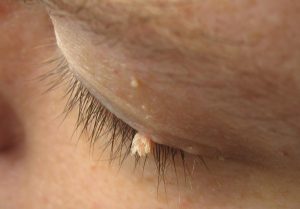 reproduction occurs. Until it comes to the surface, there is no risk of transmitting it to another person. Gradually, with the development and maturation of the cells of the epidermis, the infection reaches the upper stratum corneum. Small consolidations or growths occur on the surface of the skin. From now on, the warts are contagious. If you touch the person who has warts and you have the damaged skin, then you will be infected. In case you haved used somebody’s hygiene things, there is also a risk of getting warts.
reproduction occurs. Until it comes to the surface, there is no risk of transmitting it to another person. Gradually, with the development and maturation of the cells of the epidermis, the infection reaches the upper stratum corneum. Small consolidations or growths occur on the surface of the skin. From now on, the warts are contagious. If you touch the person who has warts and you have the damaged skin, then you will be infected. In case you haved used somebody’s hygiene things, there is also a risk of getting warts.
More information here.
Question number 4: What Are the Types of Warts?
There are the following types of warts:
- Common (vulgar)- horny growths, yellow-gray. The usual place of localization – the palm and foot. They do not pose a particular threat, but can cause inconvenience and pain. They can be transmitted when using objects shared with an infected person, in public transport, in swimming pools, saunas, on beaches;
- Juvenile – flat rounded neoplasms that occur in adolescence on the hands and face. They may form plaques that must be removed as soon as possible;
- Filiform – pink-colored growths, towering above the skin on a thin stem or forming “inflorescences”. They can appear on any part of the body, including in the genital area. Subject to mandatory removal;
- Senile – brown pigment spots, slightly elevated above the level of the surrounding epithelium. These growths are of non-infectious origin and are not contagious at all.
More information here.
Question number 5: Where Do Warts Come From?
Warts appear as the manifestation of the virus presence. The incubation period for HPV varies depending on the strain of the virus and the condition of the body of an infected person. Transmitted stress, illness, hormonal alteration of the body, hypothermia, or overheating can trigger the virus reproduction process. Whether warts are contagious for a particular person depends on the state of the body’s defenses.
Question number 6: Are Warts Contagious?
Warts can be transmitted to any person who has come into contact with infected epithelium. However, this does not happen to everyone. According to medical statistics, about 90% of the world’s population is infected with the papillomavirus but most of these people have no signs of growth on their bodies. Although the wart strain of the virus is considered not very contagious, the risk of getting infection is quite high.
Question number 7: Are Warts Itchy?
Itching indicates a serious change in growth at the cellular level. No matter whether it is on the back or on the arm, you need to take the measures. If the wart itches, then it is better not to delay the visit to the doctor. Even if it is not a degeneration into a malignant tumor, but simply an active growth of the wart, this indicates that the body is no longer able to fight the human papillomavirus. For this reason, growths can not only grow but also affect nearby areas of skin, which will necessarily lead to the emergence of new warts.
Question number 8: Do Warts Hurt?
Normally, warts shouldn’t itch or hurt. They don’t cause any discomfort if they aren’t developing. If a wart is scratching or itching, moreover, on an ongoing basis is a reason to visit the doctor, but if it also hurts, then it is necessary to go to a specialist as quickly as possible because this sign indicates its potential rebirth. The sooner you will see a doctor, the less negative consequences you will face.
Question number 9: Is a Wart with Black Dots a Bad Symptom?
Wart with black dots outwardly significantly different from the usual. Such a change is usually manifested in already old, large warts. Most often, this does not bring any additional inconvenience, but you should not leave such a symptom without attention. They differ from ordinary growths on the skin in that small capillaries grow into them. Therefore, if papillomas are damaged, ulcers and bleeding can occur. It is these capillaries that are the very “black dots” that are visible on the surface of the wart. Especially, often they are found in common, flat, and plantar warts. In more rare cases, black dots can occur due to excessive accumulation of melanin in the cells. Such a change already requires medical supervision, since it can be a sign of malignancy of the wart.
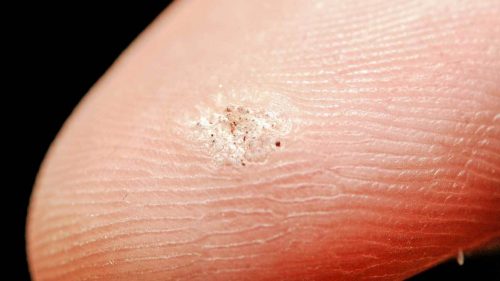
More information about dots on plantar warts here.
Question number 10: What Is the Medical Term for Wart?
A wart is a small, tumor-like, benign formation of a non-inflammatory nature. There are several types of warts, each of which has its own peculiarities and distinctive features. A wart should be distinguished from moles and other skin growths, which is possible if you see a specialist.
More information here.
Question number 11: How Do Warts Spread?
One of the worst things that warts may spread if you cut them off or do something at home on your own and injure the wart. It is a common situation when the person has touched one wart on the body, damaged it, then touched another part of the body. This will lead to the spread of warts and there are cases when people have multiple warts all over the body.
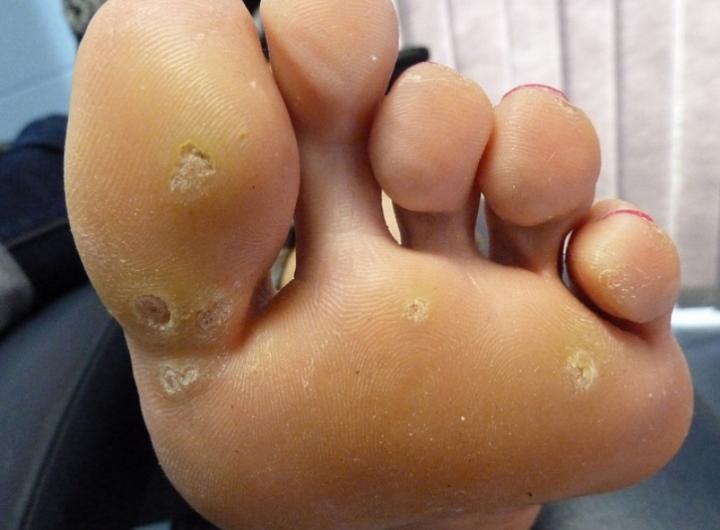
More information here.
Question number 12: What Is the Best Way to Get Rid of Warts?

The best way to get rid of warts is to kill the HPV in the body, which causes their appearance.
It is difficult to get rid of HPV forever but it is up to you not to let your immunity weaken. Pay attention to nutrition. Avoid products with preservatives, dyes and similar additives. Do not starve or overeat. In the diet, you should inlcude enough fresh vegetables and fruits, herbs. On the recommendation of a doctor, you can compensate the lack of vitamins and trace elements with the help of special vitamin complexes. Your task is to strengthen immunity. Maintain physical activity (gymnastics, fitness, jogging, walking, exercise equipment). Harden the body (swimming, douche, pouring). Minimize the use of antibiotics (their excessive use greatly reduces immunity). Have a full night’s sleep (about 7-8 hours). Follow all the above-mentioned rules and you will be able to strengthen your immunity.
More information here.
Question number 13: How to Get Rid of Genital Warts?
Genital warts grow in the vagina or vulva, cervix, penis, anus or urethra, sometimes form clusters. Genital warts are usually painless but can itch. To remove them, the modern medicine offers cryotherapy, which removes warts, freezing them, electrocoagulation, which burns them, surgery or laser. Besides the mentioned methods, there are a lot of methods of the non-traditional medicine. You can use natural products for the treatment of genitalm warts. Among the numerous recipes, there is such as the homemade raw apple cider vinegar, which should be applied to warts with a cotton swab, toothpick or small brush. Leave it for 10 minutes and then wipe with a dry cloth. Do this three times a day, at least for a week. In 2-3 days, you will see a change in the color of the warts, after a week they turn into dry crusts and disappear.
More information here.
Question number 14: What Causes Genital Warts?
Genital warts are caused by certain types of human papillomavirus (HPV). Human papillomavirus infection refers to sexually transmitted diseases through direct skin-to-skin contact. Less often, the virus transmittion takes place via the household way. Infection occurs when the penetration of the vagina or anus occurs. Activation of HPV occurs not only against the background of disturbances in the immune system but also signals about some infection with sexually transmitted diseases.
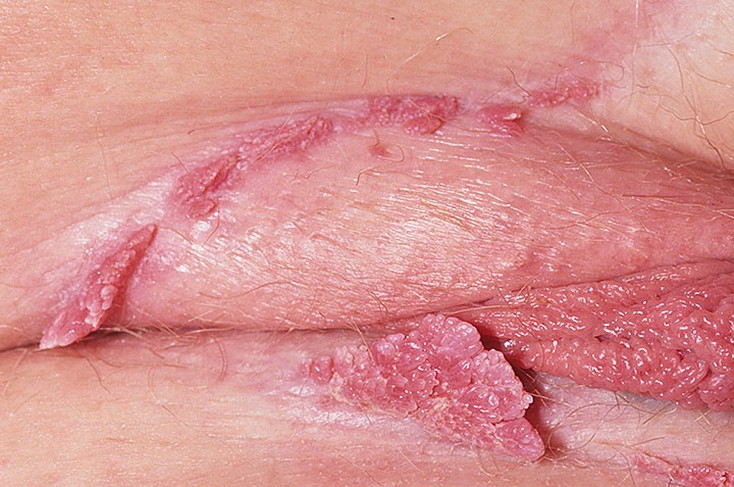
More information here.
Question number 15: Do Genital Warts Go Away?
It is impossible to completely get rid of the virus in the body. Only symptoms can be removed – physical elimination. However, after the removal of genital warts in 50% of cases, warts no longer appeared while 10 % of people relapsed after 3 months. Genital warts sometimes pass by themselves and do not require treatment but this is a rare situation. When genital warts are detected, the effectiveness of treatment is achieved by complex therapy, which involves the use of immunostimulating, antiviral drugs and destructive method (destruction of growths).
More information here.
Question number 16: How to Get Rid of Plantar Warts?
Modern methods of suppressing the virus and removing plantar warts make it possible to completely get rid of warts over a short period of time. Methods differ in the number of procedures required to remove the build-up and in the pain of the process. The essence of all methods is reduced to the complete destruction of tumors and the strengthening of the body’s defenses. In case of leaving of the smallest particles of a wart, recurrence of a disease is possible.
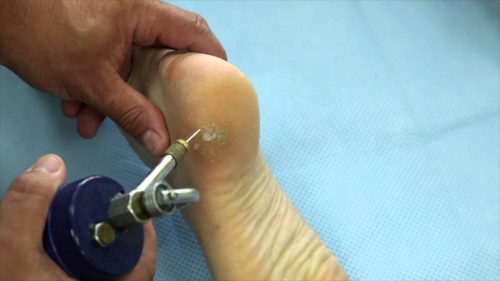
More information about plantar wart removal here.
Question number 17: Are Plantar Warts Contagious?
The human immune system perceives the papillomavirus (HPV) differently, the wart HPV strain itself is not too contagious. Therefore, not every contact with a virus causes a disease. However, the virus persists and multiplies in a warm humid environment: showers, public pools, changing rooms. When walking barefoot in such places, you can become infected through a microcrack or cut on the foot. The long stay in water leads to softening of the skin and increase its permeability. It also creates a route of entry for the virus.
More information about plantar warts here.
Question number 18: Why Does Plantar Wart on Toe Appear?
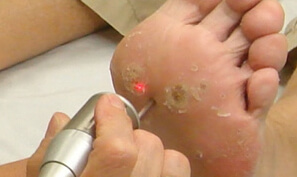
This viral disease on your feet or toe and is manifested in the depressed immunity. A wart on the toe most often appears in the presence of cuts, scratches, upon contact with a person who already has a similar growth. Such an unpleasant growth on the foot is manifested with increased sweating of the feet, wearing shoes, which causes profuse sweating. The formation of this defect occurs quickly and people can only be surprised noting that between their toes is some kind of growth like a blister.
More information here.
Question number 19: What Causes Warts on Hands?
Warts on hands are caused by the same HPV. However, the location hands if more common than any other one due to the fact that people touch hands of each other daily. If you have the damaged skin on your hands, some scratches, or something else, you should be extremely careful because if a person, whose hand you touched had a wart, you will definitely have warts on hands as well.
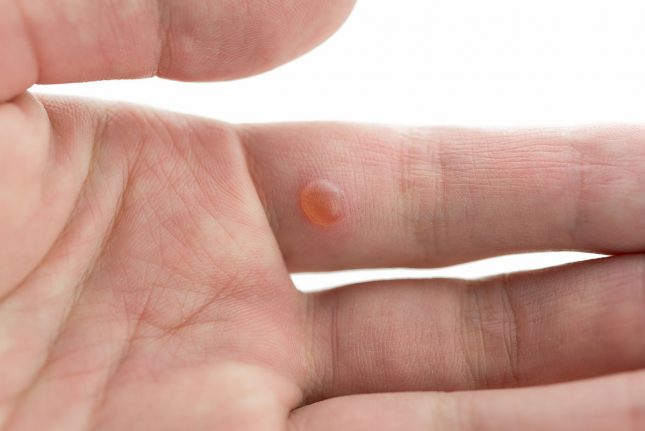
More information here.
Hope that these questions and answers will help you to learn more about warts, distinquish them the right way, and treat effectively.
